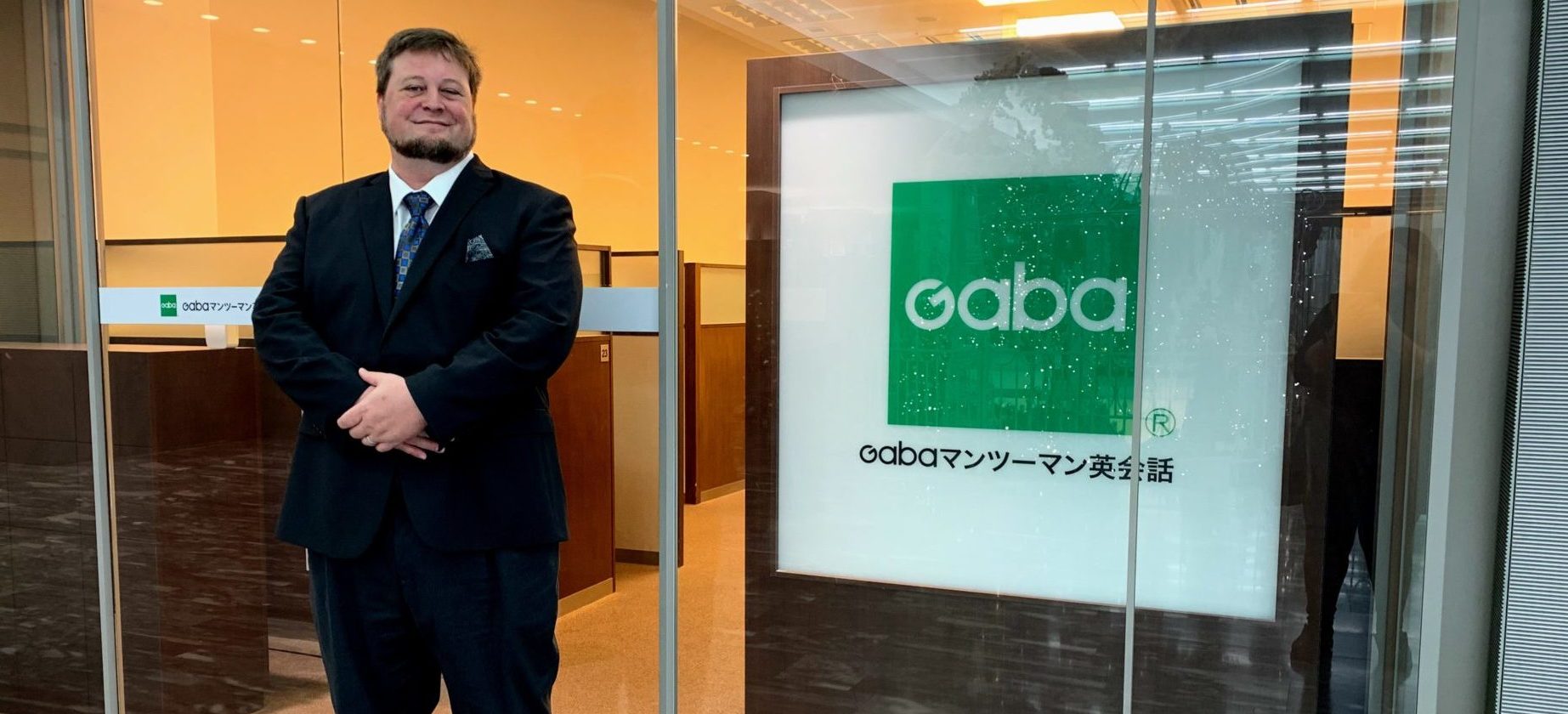To be in Japan longer than 3 months I needed to have a
What do I do at GABA
I am a contract instructor for GABA Corporation. They pay me to provide lessons to their clientele using their learning materials at their learning studio.
The vast majority of the work at GABA is teaching one-on-one English lessons to Japanese adults. They have some group seminars, corporate presentations, and other services as well but I don’t yet qualify to teach them.
Gaba lessons are 40 minutes long. Students can be assigned randomly, or clients can choose which instructor they want for a given lesson. The clients buy blocks of points they use as credits for the lessons. They can also pay for textbooks and other services.
The lessons are usually based on a text book but one of GABA’s key selling points is that the instructors will heavily customize lessons to fit the
The focus of GABA lessons is generally practical communication, especially speaking and listening skills. Most Japanese learn to read and write English in high school, but their ability to speak and listen to natural English is a lot more limited. We don’t teach formal grammar or language rules, we focus on providing correct examples and encourage the students to learn through use and instinct. It’s more akin to coaching than teaching.
How do I feel about it?
For the most part, I really enjoy it. I love meeting new clients and getting to know recurring ones. I enjoy helping them learn and keeping them motivated to continue their studies. I enjoy praising their efforts and watching them get better at speaking with the help of my coaching.
The one-on-one format is great for me. I get to really connect to my students rather than having to take a shotgun approach with teaching and hoping I hit the mark for as many as possible. I love talking with people and that is really at the heart of what I do each day. I tend to come back from work feeling a bit tired but also excited for what happened during the day.
I came to Japan for a first hand taste of Japanese life and culture. Being able to have conversations with a wide range of Japanese people every day in my own language is pretty awesome for that. They are always giving me tips on what to do and where to go as well as insights into their work and lives.
There are a few downsides, mostly due to being a contractor. Work is not always consistent. I am essentially competing with the other contractors for clients so if there are too many instructors or not enough students there are going to be instructors who don’t teach lessons and don’t get paid. It’s not cutthroat by any means, but neither is your pay entirely in your hands.
And the pay itself is not that great. You get ~$15 for a lesson with some options for small bonuses. You can gain ranks as a teacher and get paid more, but the rules for ranking up are stringent and there are limited slots for each rank forcing instructors to bump each-other out to try and get them. Personally, since I’m a short-timer, I don’t much care about all that.
The real up-side is you pretty well get to decide when you want to offer lessons and when you don’t. The up shot is you pick your own schedule to work. You take off whatever days you like, and can work any hours your studio is open.
Overall, GABA is a very professional company and they are honest about how things work and what they expect. As a contractor, you can’t expect them to take care of you unless they benefit. They do what is good for them, and you should do what is good for you. To do otherwise is to invite disappointment and frustration.









2 Comments
Am I correct that it would be virtually impossible to live on those wages there? I know you all had some resources from selling the Airstream. Just trying to gt a handle on how expensive it is, and if folks can pay the bills on those wages.
It’s possible. After a couple of months, I could earn about 250K Yen per month. That covers to rent and utilities for a small apartment in Tokyo and leaves about 100K per month extra. For one person, that’s possible to live on, but pretty tight. If you had two people earning that, it would be pretty comfortable. For us, with two people and one income, it’s still losing money overall, but slowly. Were moving to Sapporo soon and the rent is much lower than Tokyo. So if you are in a cheaper area, it’s very livable.
I’d say the US equivalent would be about $20 per hour in an urban area. Above minimum wage, but you won’t get rich at it.